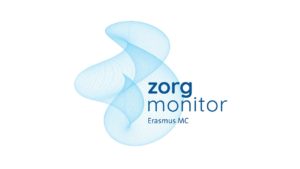Measuring and acting on outcome information of head and neck cancer patients.
Head and neck cancer (HNC) arises from the epithelium of the head and neck region and frequently manifests as locally advanced disease. In the Netherlands annually approximately 3,000 patients are diagnosed with HNC and around 900 patients die due to this disease. Patients tend to be older, to have comorbidities and less social support. Given the relative rarity, diagnosis and treatment takes place in specialized centres.
Both disease and its treatment can lead to significant disfigurement and dysfunction with subsequently psychosocial complaints. Treatment-related side effects, such as altered speech or swallowing problems, can have an enormous impact on patient’s daily life. These side-effects are immediately noticeable in social settings and can negatively affect quality of life, increase levels of psychological distress and put pressure on the spousal relationship.
In HNC care, surveillance of patients has long focused primarily on successful salvage and detecting loco regional recurrence. However, optimal survivorship care includes issues beyond the detection of cancer: not only cure but also care is important in the post-treatment follow-up phase. Patients can have difficulties sharing a complete health status, including psychosocial problems, during follow-up visits. There is only a short period of time during these visits and doctors require good communication skills to facilitate this process. Physical impairments and psycho-social problems may go undetected and opportunities to intervene and alleviate suffering can be missed. Adequate measurement of patient reported outcomes (PRO) can facilitate a systematic approach in the follow-up of HNC patients.
Patients with HNC are a relatively vulnerable group of patients with a generally higher age and lower educational level. Public awareness of head and neck cancer is low, in contrast to for example breast cancer. That is why initiatives that lead to patient empowerment and shared decision making are just as important for this specific patient group. Our aim is to improve quality of care and strengthen patient empowerment and shared decision making by providing head and neck cancer patients with insight into their individual health situation, treatment options and future expectations at the right moments in time.
Therefore, we developed Healthcare Monitor (HM) in 2013: an unique ePRO based clinical support system monitoring head and neck cancer patients during their whole patient journey, including 1:1 feedback of results in the consultation room. It is designed with and used by multidisciplinary health care professionals measuring quality of life, physical, and psychosocial functioning from diagnosis until end of follow-up. In 2019 already more than 1850 HNC patients were included with 95% patient compliance at intake and over 80% at follow-up. Clinicians have real-time access to the results which ensures direct patient feedback. A dashboard automatically signals important changes in patients’ health situations, based on specific cut-off values. All patients receive further clinical or diagnostic evaluation or referral to specialty care based on these cut-off values and as needed. Furthermore, a dynamically predictive model is being developed that predicts the future course of complaints at an individual level.
A first non-randomized evaluation among HNC patients who received HM care versus standard care revealed that patients experience better doctor-patient communication and increased efficiency of the consultation using HM. Patients felt better prepared and experienced more focus on critical issues. Integration of HM into routine care and providing feedback on HM-results has shortened the duration of doctor-patient consultations and has led to increased quality of care and enhanced patient empowerment as outcome data most valued by patients are discussed.
The Department of Otorhinolaryngology and Head and Neck Surgery of the Erasmus MC Cancer Institute is the initiator of this initiative and a pioneer regarding value based healthcare applications in HNC care and plays an exemplary role for other (non-oncological) departments at the Erasmus MC. Integrated practice units are formed with the Departments of Oromaxillofacial Surgery and Radiation Oncology of the Erasmus MC Cancer Institute. This initiative also includes a partnership with the Expertise Team for Valuebased Healthcare within Erasmus MC, the departments of HNC Surgery of Radboud University Medical Center (Nijmegen) and Leiden University Medical Center and the national patient association of HNC patients. Together, roughly 40% of all HNC patients in the Netherlands are covered this way and we hope to achieve cooperation and more unity in how we measure, monitor and discuss quality of life and functional outcomes of HNC patients and enable benchmarking.

